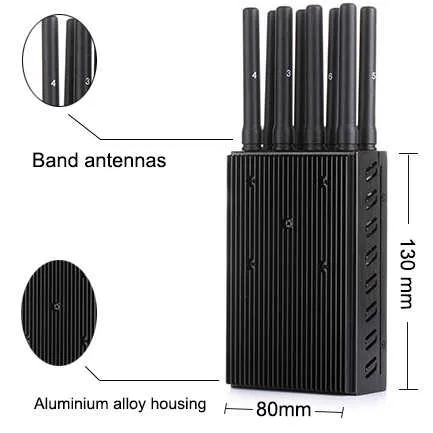Cell phone jammers are not enough to intercept prisoners calls
Cell phone jammers in the country's prisons are not enough to stop criminals inside from sending messages to others outside the prison.
That's the view of senior prison officials, and while network jammers (which they say can be used) are used to block cell phone signals in prisons, other interception techniques are needed for the system to be effective.
"Cellphone jammers are being used. However, to be truly effective they must be used in conjunction with other technologies such as WiFi jammers. We can see this happening in other jurisdictions. But it still needs to be used correctly here.
"So some prisoners have mobile phones and tablets but are unable to make calls. However, you can use your phone's data allowance or if you have access to a hotspot device or WiFi box, you can also make calls through social media apps. This includes WhatsApp, Facebook Instagram etc. So the problem of communicating with the outside world remains. Communication is still a work in progress.
"In other jurisdictions, you'll see cell phone jammers used in conjunction with other interception devices to determine what frequencies those devices are using and then target those specific frequencies." If it doesn't, it's almost like a dreidel in the mud, "a senior prison Service source explained yesterday.
Acting Commissioner of Prisons Deopersad Ramoutar did not directly answer questions put to him recently about the function of mobile phone jammer, saying it was confidential information and not within the purview of the Prison Service.

On July 5, several contraband items were found and seized at Aruka Maximum Security Prison, including a Wi-Fi box.
The officer received the information and went to the cell block B of the prison.
Police conducted a search and found and seized a bag containing 53 grams of cannabis, mobile phones and Wi-Fi boxes in a cell near the toilet.
In another cell, police found and seized a bag containing 104 packs of cigarettes and marijuana weighing a total of 241 grams.
Two prisoners said they had the seized items.
On Friday, prison officials expressed concern about the use of drones in prisons, with one senior officer saying it was a "ticking time bomb" that needed to be addressed.
"All it takes is a drone, we can't catch it, it could drop knives or even guns and we could have a very serious situation." Everything we've seized so far has been contraband - cigarettes, marijuana, cell phones, chargers, etc. But if we miss even one, it could be a very dangerous situation for the prison and the country."
Ramutar said the prison service had noticed an increase in the number of drones being used around prisons, especially in the last year, and had taken action.
He said that with the help of various branches of the state security services, most of the items dropped from the prison walls were confiscated before they reached the prisoners.